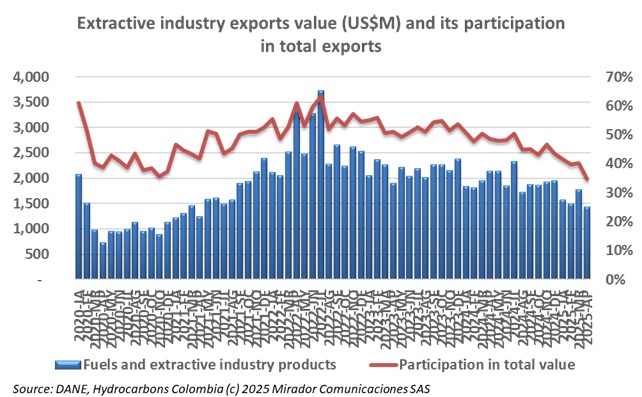We didn’t attend the ACP conference last week in Cali because of a prior commitment but we cannot imagine that there were a lot of smiling faces.
On the third day of the XVII Congress of the Regional Indigenous Council, Colombia’s Minister of Environment (MinAmbiente), Lena Estrada Añokazi, reaffirmed the national government’s commitment to Indigenous Peoples and celebrated the progress made in shaping an environmental policy rooted in territorial and ethnic perspectives.
The Board of Directors of Colombia’s National Hydrocarbons Agency (ANH) approved significant changes to the country’s regulatory framework for the oil and gas sector.
Colombian energy giant Ecopetrol has announced a firm commercialization plan for both domestic and imported natural gas, aiming to supply up to 132 Gbtud to the market through long-term contracts.
While Latin America’s oil and gas sector surges ahead, Colombia has chosen to sit quietly on the sidelines.

The National Administrative Department of Statistics (DANE) reported the value of Colombian exports during April 2025.
Colombia could be forced to rely permanently on oil and gas imports if the current government policies under President Gustavo Petro are not reversed, according to a stark warning from the national Comptroller General’s Office.
According to the latest Latam Pulse report released by Bloomberg and AtlasIntel, Colombia ranks as the second-most politically risky country among key Latin American economies and also holds the second-lowest presidential approval rating in the region.
President Gustavo Petro has once again urged Ecopetrol (NYSE: EC) to sell its fracking operations in the US.
The presidency of Ricardo Roa at Ecopetrol (NYSE: EC) is facing intensifying scrutiny as corruption allegations continue to mount.